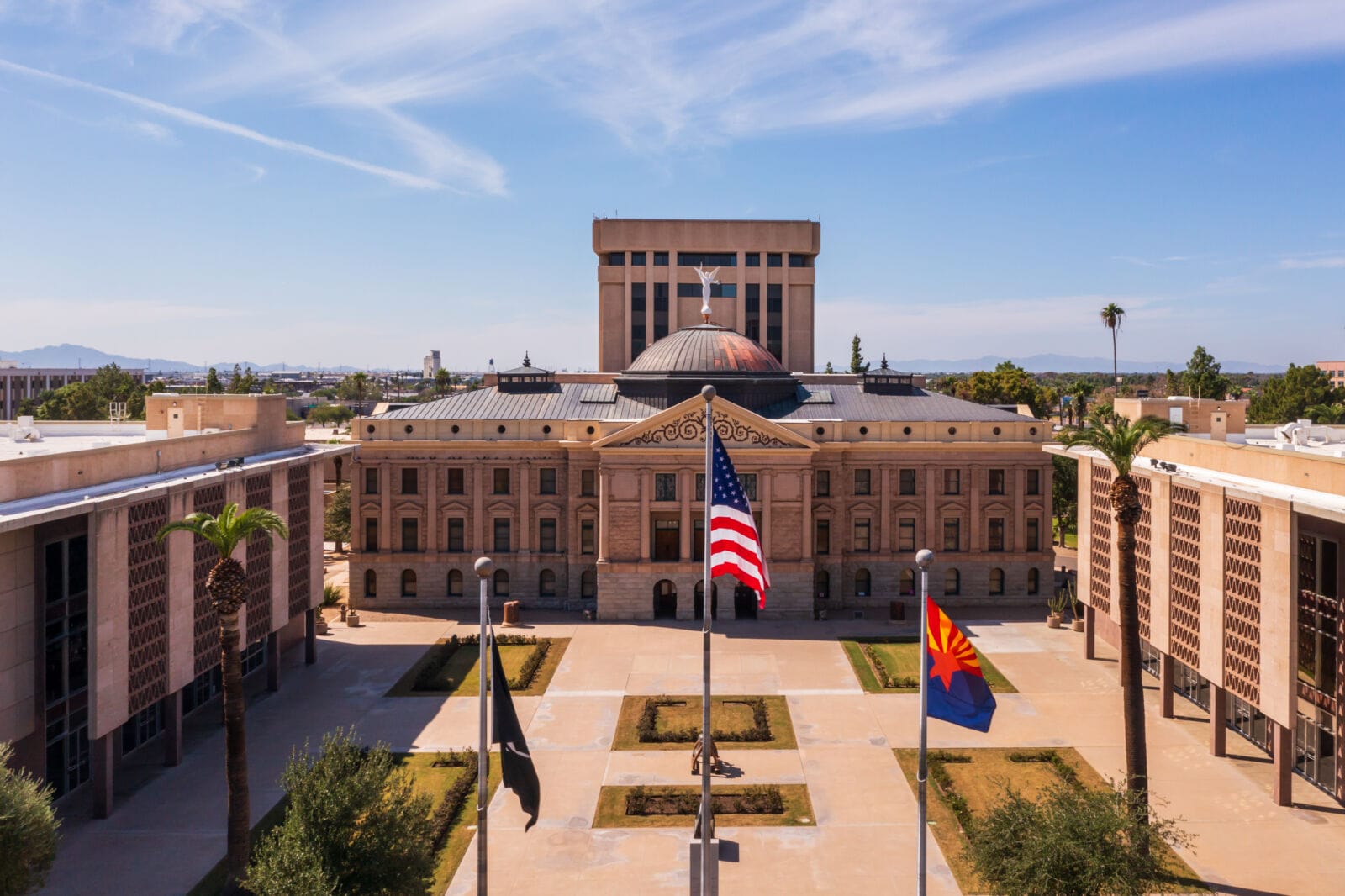With the closing of the 2025 Legislative Session, many important policy issues impacting the development community have been debated and considered and fewer have been passed and signed into law. At Valley Partnership, we advocate for responsible development policies at the local, state and federal levels. As an industry, certainty and long-term planning are critical for successful community development. Key areas of importance include thoughtful water planning, preserving economic development tools and modifying regulations to increase the state’s housing supply.
Arizona has long been a leader in innovative, smart and sustainable water policies. But many recognize the policies that helped create our vibrant metropolitan region need to be restructured for a drier future.
Water policy is complex as it impacts many entities and stakeholders across the state. There were important conversations at Arizona Legislature this session about groundwater, active management areas and converting agricultural land for urban development. Specifically, Senate Bill 1611 would allow a person who owns land in an active management area with an irrigation grandfathered right (IGFR), to permanently relinquish all or a portion of the IGFR in exchange for a physical availability exemption credit. After years of negotiations, an agreement was reached.
Supporting our Utilities
As the constraints on power generation continues to impact growth both regionally and nationally, we have continued to work with our utility partners to support policies to allow them to increase their ability to generate power and the stability of the grid. Two of these pieces of legislation were signed into law: House Bill 2679 allows utilities to securitize additional costs related to operations and House Bill 2201 defines wildfire mitigation efforts required to be taken by the utilities to avoid liability for future wildfires.
Economic Development Tools Under Attack
Economic development tools have played a critical role in creating the thriving economy we have today. Compared to our competitor states, Arizona has few economic development tools to attract investment in areas desperately needing new development. Once again, GPLET (Government Property Lease Excise Tax) has been under attack, an economic development strategy deployed by local jurisdictions to develop or redevelop areas. This year’s bill, Senate Bill 1050, would have reduced the amount of the tax abatement essentially rendering the tool unusable. Luckily, Gov. Hobbs vetoed the bill.
Housing Crisis Top of Mind
The state has not been able to keep up with the increased demand in housing as people from across the nation choose to relocate to Arizona. Affordable and attainable housing continues to be a challenge and requires multiple solutions, regulatory changes, and programs to help jumpstart homebuilding to meet this demand. Gov. Hobbs has signed a bill into law that will require municipalities with populations of 150,000 or more to allow for a minimum of 10% existing commercial parcels to be eligible for adaptive reuse and multifamily residential development. It is estimated that over 150,000 units could be built in the 10 cities impacted by these changes.
READ MORE: Ben Graff explains how NIMBYism impacts Arizona development
There have been a pair of bills signed into law that should help to streamline interactions between the development and local governments.
House Bill 2447 requires municipalities to authorize administrative personnel to perform specified duties:
- to review and approve site and development plans, land divisions, lot line adjustments and ties, and preliminary and final plats without a public hearing
- to review and approve design review plans based on objective standards without a public hearing
- allow at-risk submittals for certain on-site preliminary grading and drainage work on infrastructure
- allow applicants with a history of compliance with building codes and regulations to be eligible for expedited permit review
Senate Bill 1286 allows a county employee authorized by an adopted county ordinance to carry out specified duties relating to the subdivision of land, approval of different plats and parcels of land and approval of subdivided lands with water restrictions.
Additionally, Senate Bill 1229 would prohibit a city from regulating home designs and development standards for single family homes with the intention of building smaller and more affordable homes. The “Arizona Starter Homes Act” has received much attention and vigorous debate as previous versions have failed to pass the Arizona Legislature or been vetoed by the Governor.
As this session ends, we urge lawmakers to work with fellow colleagues and stakeholders in the interim and moving forward on economic development policies and infrastructure planning that will set Arizona up for success over the next few decades.




